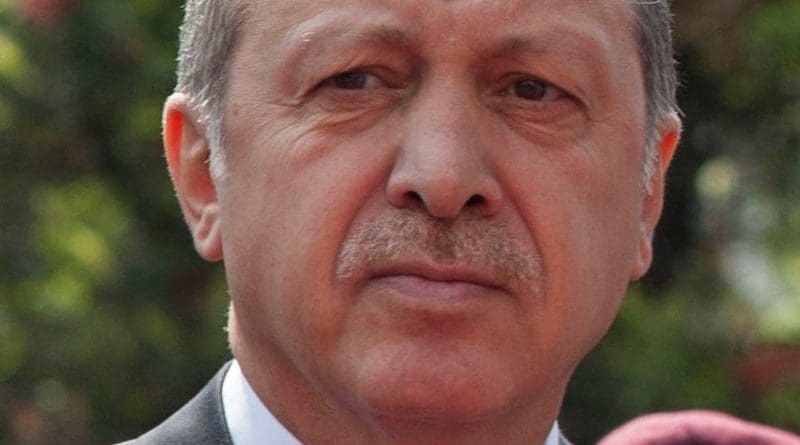Euphrates Shield 2: Erdogan Threatens New Attack In Northern Syria
By Arab News
By Menekse Tokyay
Turkey will launch a new cross-border military operation into Syria if its national security is threatened by Daesh, Kurdish militants and political turmoil in Syria and Iraq.
“We will take all necessary measures accordingly. We are ready,” President Recep Tayyip Erdogan said on Saturday. “They should know that whatever we did during Operation Euphrates Shield, we are prepared to do the same again.
“Those who want to corner Turkey by using terror groups will be left alone with these ticking bombs.”
Turkish forces launched Operation Euphrates Shield in August 2016 against Daesh and the People’s Protection Units (YPG), the Kurdish militia in northern Syria. The operation ended in March.
Turkey considers the YPG, the armed wing of the Democratic Union Party (PYD), a terrorist group, and views both organisations as the Syrian branch of the banned terrorist Kurdistan Workers’ Party (PKK). The YPG’s partnership with the United States in fighting Daesh is a fault line in the relationship between Ankara and Washington.
Erdogan also criticized the US government for supplying weapons to the YPG that ended up in the hands of Daesh or PKK militants, and could be used against Turkey in the future.
Metin Gurcan, a former military officer and security analyst at the Istanbul Policy Center, said coordination with Russia was the key to any Turkish cross-border military operation. Turkish presidential spokesperson Ibrahim Kalin said in June that Turkey and Russia may deploy troops to Idlib in Syria to monitor de-escalation zones and minimize possible clashes between the regime and opposition forces.
“In Afrin canton, especially in the Tel Rifaat area, the Russian military presence and build-up continues,” Gurcan said. “If the Russians opt for a military withdrawal there, the possibility of Turkish military incursion increases, but at the moment it is not the case.
“There is serious strategic bargaining between Moscow and Ankara over the fate of Afrin and Idlib cantons. Turkey may offer help to Russia in Idlib with separating radical jihadist armed groups from moderate opposition elements, and it can also play a post-conflict reconstruction mediator role in its relations with the groups in Idlib.”
In return for this, Gurcan said, if Moscow gave the green light, Ankara may try to expand its control over Syrian territories in the Jarablus/Al-Bab/Al-Rai triangle, but only at a limited operational level.
“The approval of Russia is key for this because it has airspace superiority in the west of the Euphrates river, where it dominates. As long as the Russian military presence continues around Afrin canton, which is controlled by the YPG, such a Turkish operation is not likely for the foreseeable future.”
Turkey’s security priorities have changed, said Prof Nursin Atesoglu Guney of Bahcesehir Cyprus University. “This is due to the changed security environment where multiple terrorist threats are coming from Ankara’s southern borders, especially from Syria and Iraq.
“During the six years of the Syrian civil war, Turkey, in the face of different soft and hard security threats, most of the time has tried to deter them by its own means.
“Seeing the rise of multiple terrorist threats like Daesh, PYD and PKK, Turkey is now very much determined to launch a pre-emptive strike when necessary to prevent the formation of a terrorist belt.”
Besides military preparations, Ankara is also engaged in diplomatic contacts at several levels to ensure the success of any military operation, she said. “In this way, Ankara is also hoping to avoid PKK elements in Turkey receiving support from this terrorist belt.”
Guney said that during his recent visit to Turkey, US defense secretary was shown evidence that YPG and PKK weapons found in Turkey were American, and that Turkey viewed this as an unacceptable threat to its security.

